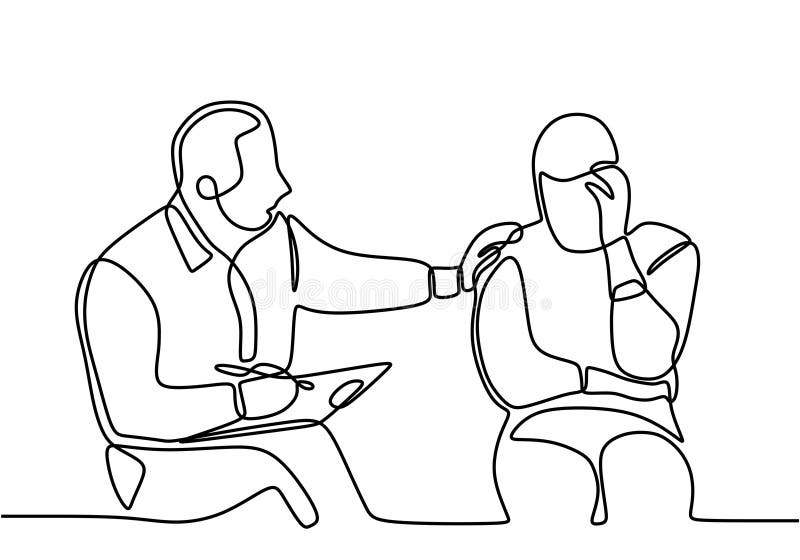Revealing the Tricks of the Best Psychologist in Delhi for Anxiety Alleviation
Revealing the Tricks of the Best Psychologist in Delhi for Anxiety Alleviation
Blog Article
Psych Treatment: A Comprehensive Overview to Results and strategies

Cognitive-Behavioral Therapy
Cognitive-Behavioral Treatment (CBT) is an extensively used psychotherapeutic approach that focuses on recognizing and customizing useless reasoning and actions patterns. Established in the 1960s by Aaron T. Beck, CBT incorporates behavior and cognitive concepts to address different psychological wellness problems, including depression, anxiety, and stress-related problems.
Techniques such as cognitive restructuring, exposure treatment, and skill-building exercises are commonly used. Cognitive restructuring involves challenging and altering unfavorable thought patterns, while exposure treatment intends to reduce worry and anxiousness through gradual direct exposure to been afraid circumstances or things.
Evidence-based research supports the effectiveness of CBT for a large range of psychological conditions - Best Psychologist in Delhi. Its emphasis on skill purchase and self-help strategies equips clients to proceed progression separately after therapy wraps up. The flexibility and performance of CBT have made it a keystone in contemporary psychotherapeutic technique
Psychodynamic Approaches
Rooted in the early theories of Sigmund Freud, psychodynamic strategies concentrate on exploring the subconscious mind and its impact on behavior and emotions. These techniques aim to discover covert thoughts and feelings that may be driving maladaptive behaviors and mental distress. Central to this technique is the idea of inner conflict, commonly originating from unsolved past experiences, particularly those from childhood years.
Therapists using psychodynamic techniques use several crucial methods, consisting of cost-free organization, where patients are urged to speak easily to disclose subconscious material, and dream analysis, which analyzes the unexposed content of desires. Furthermore, the expedition of transfer and countertransference dynamics within the therapeutic partnership is vital. These interactions can offer understandings right into the person's inner world and relational patterns.
Psychodynamic therapy is commonly longer-term contrasted to various other modalities, using a deep and thorough understanding of the person's mind. Study shows that it can be especially effective for intricate psychological health concerns, such as individuality disorders and chronic depression. By cultivating self-awareness and psychological insight, psychodynamic therapy looks for to bring subconscious material to awareness, making it possible for individuals to achieve significant and long-term adjustment in their lives.
Humanistic Methods
Structure on the structures laid by psychodynamic strategies, humanistic methods offer a distinctive viewpoint concentrated on specific potential and self-actualization. Coming from in the mid-20th century, these techniques prioritize the inherent benefits and growth capacity of individuals, emphasizing an all natural sight of human experience. Secret figures such as Carl Rogers and Abraham Maslow have dramatically influenced this therapeutic approach, which encompasses methods like client-centered therapy and Gestalt treatment.
Client-centered therapy, developed by Rogers, plays an essential role in humanistic methods. It relies upon the therapist giving an atmosphere of unconditional positive regard, empathy, and harmony. This cultivates a safe room for clients to explore their feelings and experiences without judgment, helping with self-discovery and personal growth. The therapist's duty is even more of a facilitator than an authority, urging customers to harness their inner sources for healing.
Gestalt therapy, another vital humanistic technique, highlights present moment understanding and the combination of body and mind. By go to this site concentrating on the "here and currently," customers acquire higher insight into their current feelings and habits. Strategies such as role-playing and assisted visualization are usually used to assist go to these guys clients get a deeper understanding of themselves, ultimately resulting in improved self-awareness and satisfaction.
Integrative Treatments
Integrative treatments represent a synthesis of numerous healing techniques customized to meet the special demands of each customer. This method acknowledges the complexity of human psychology and the complex nature of psychological health issues. By incorporating elements from different colleges of psychotherapy-- such as cognitive-behavioral therapy (CBT), psychodynamic treatment, and humanistic strategies-- integrative therapies provide an even more adaptable and all natural treatment paradigm.
Practitioners of integrative treatment evaluate each client's specific requirements, signs and symptoms, and personal history to create a customized treatment strategy. This customized approach improves the potential for healing success by resolving the origin creates of mental distress and promoting overall wellness. Strategies could include mindfulness exercises, cognitive restructuring, and psychological processing, each picked to target different aspects of the customer's issues.
In addition, integrative treatments stress the healing connection, checking out the client-therapist bond as a crucial part of effective treatment. This relationship fosters a helpful environment where clients really feel safe to explore and address their concerns. The flexibility of integrative treatments makes them appropriate for a wide variety of conditions, including anxiousness, clinical depression, trauma, and social troubles, thus enhancing their applicability and effectiveness in diverse medical settings.

Measuring Treatment End Results
Reviewing the performance of psychotherapy is critical for both medical professionals and customers to guarantee that the treatment is yielding the wanted outcomes. To achieve this, numerous approaches and tools are utilized to determine treatment outcomes systematically. Standard assessment instruments, such as the Beck Clinical Depression Supply (BDI) and the Generalized Anxiety Disorder 7 (GAD-7), supply measurable data on symptom seriousness and adjustments with time.
Along with standard devices, qualitative approaches like client self-reports and medical interviews offer valuable understandings into the personal experiences and viewed development of clients. Routinely arranged analyses, typically at the start, navel, and end of therapy, assistance in tracking the trajectory of renovation or determining areas requiring adjustment.
Result dimension is not restricted to signs and symptom reduction; it additionally incorporates practical renovations in day-to-day live, such as far better interpersonal connections, enhanced job efficiency, and enhanced general well-being. Modern advancements click here for more in electronic health have introduced mobile apps and on the internet platforms that help with real-time surveillance and comments, even more fine-tuning the evaluation procedure.
Ultimately, a comprehensive technique to determining therapy outcomes guarantees that therapeutic interventions are reliable, efficient, and tailored to meet the individual demands of clients, consequently optimizing the overall restorative experience.
Verdict
Humanistic methods concentrate on individual growth and self-actualization, while integrative therapies combine multiple methods for tailored treatment plans. Examining therapy end results through standard assessments and qualitative approaches guarantees a comprehensive understanding of efficiency, ultimately assisting clients towards enduring mental wellness improvements.
From the organized method of Cognitive-Behavioral Therapy (CBT) to the deep exploration of the subconscious in psychodynamic therapy, each method brings unique benefits. Its focus on skill procurement and self-help techniques encourages customers to proceed development separately after therapy concludes (Best Psychologist in Delhi). Trick numbers such as Carl Rogers and Abraham Maslow have actually substantially influenced this therapeutic technique, which encompasses methods like client-centered therapy and Gestalt treatment

Report this page